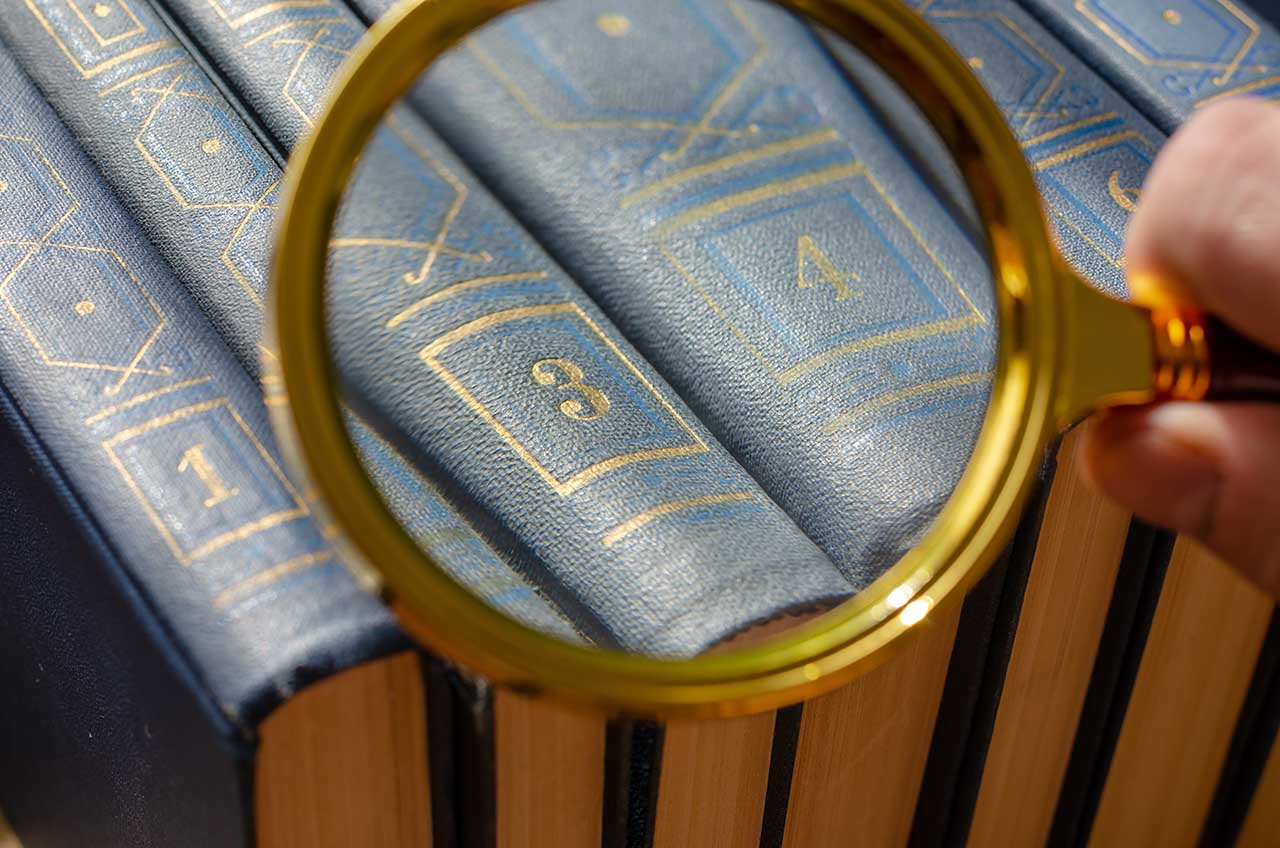Although it’s an interesting task, students often don’t have enough time or writing skills to craft a literary analysis essay excellently. Our article will help you cope with the assignment and compose a flawless paper. Discover how to craft an outline, start a literary analysis essay, and many more.

What is a Literary Analysis Essay?
Paper quality depends not only on the writer’s skills or the presence of fresh ideas in a text but also on their understanding of what is a literary analysis essay. Many students make the same mistake and compose reviews or just describe what they’ve read, but it’s not the purpose of this task. Take a look at the explanation of a literary analysis below to avoid the confusion:
Literary analysis essay definition
A literary analysis essay involves studying the text, evaluating the plot, analyzing characters, and determining devices used by the author to engage and influence readers. A novel, tale, poem, play, or another piece of literature can become the object of your research. When composing a literary analysis essay, a writer explores the text form, style, perspective, and characters.
What is the purpose of a literary analysis essay?
An excellently composed literary analysis essay demonstrates that you’ve looked at the events described in the literature piece from different perspectives. Examination of all the major elements, including a text structure, plot, author’s style, characters’ qualities, main theme, and form is an essential stage of the writing process. After you study all the important components, provide a conclusion on how they interact with each other and influence your overall impression.
How to Start a Literary Analysis Essay?
Now that you know a literary analysis essay definition, you’re ready to move further and discover the secrets of writing the paper. When reading the text, you must be very attentive. Notice the tricks the author uses to engage the reader, surprising details, and uncommon character’s features. Use these elements for your analysis.
It’s also necessary to answer a few important questions to discover the essence of the literature piece you’ve just read:
- Which parts are the most essential ones?
- What literary devices did the author use, and why did they choose them?
- Do characters change somehow?
After you’ve answered these questions, you’ll have to determine the relationships between the ideas and storyline, the characters’ behavior, and how their roles change in a piece. Conduct comprehensive research to get information about the text, its background, and the author. These materials will help you understand the writer’s intentions and ideas better.
Literary Analysis Essay Outline
Crafting a literary analysis essay outline is an efficient method to organize your materials and structure a paper. An outline will contain all the core thoughts of your research. It helps an essay writer figure out whether they’ve studied all the essential elements and mentioned all the points.
Before you design an outline, it’s necessary to write a thesis statement that shortly describes your paper’s content. Usually, it contains one sentence and presents the entire sense of the essay. Crafting an outline is the next step after composing a thesis statement. Traditionally, it consists of 3 sections:
- Introduction. This part is the most important one, as it should explain the main points of the body text and grab the reader’s attention. However, it’s not only a brief description of the essay’s content – you have to compose a catchy introduction that engages the audience. It’s necessary to use a hook to grab the reader’s attention and make them wonder what happens in the next literary analysis essay’s section. You can add a quote, an interesting fact connected with the book or the author, or write a question and promise to provide the answer in the next part.
- Body text. After you’ve composed the introduction, it’s necessary to move to the next step in your writing. Body text will contain all your statements, arguments, and important details supporting your analysis. Usually, this section has 3 paragraphs, but you can extend it depending on the task complexity and the professor’s requirements. When designing an outline, use the columns or bullet points to present the main ideas. These lists will help you figure out which details are unnecessary in your essay.
- Conclusion. Your final thoughts will shape the entire paper and influence the reader’s impression. At this point, the audience gets the overall impression of your analysis and decides whether you’re right or wrong. Name the paper’s core thoughts and write your final statement. You can write a sentence or two about the significance of the author’s idea or the impact made by the piece.
Literary Analysis Essay Examples
Check this short list of literary analysis essay example to get the idea:
- http://web.cocc.edu/cagatucci/classes/eng104/midtermexamples.htm
- https://www.unm.edu/~aobermei/Eng200/sonnet95a.html
20 Literary Analysis Essay Topics
Sometimes professors allow students to pick topics themselves, and it’s a lucky ticket in the academic world. You can choose your favorite book or novel, research it, and provide excellent analysis. If you’ve written about the piece you love before or want to impress the professor, we recommend you to check our list of literary analysis essay topics for more ideas:
- Examining the structure of Kurt Vonnegut’s “Slaughterhouse-Five.”
- Explaining the importance of Ray Bradbury’s “Fahrenheit 451.”
- Analyzing the changes in Ebenezer Scrooge’s character over the course of “A Christmas Carol.”
- The importance of symbolism in “Wuthering Heights.”
- Examining Ernest Hemingway’s writing style.
- The connection of plot lines in “Froth of Days” by Boris Vian.
- The lasting influence of “The Catcher in the Rye.”
- Literary devices used by George Orwell in “1984.”
- The use of humor in Mark Twain’s short stories.
- The impact of “To Kill a Mockingbird.”
- Analyzing the allegory in William Golding’s “Lord of the Flies.”
- “Pride and Prejudice” character analysis.
- “Love in the Time of Cholera”: Florentino Ariza character analysis.
- The significance of Herman Melville’s “Moby-Dick.”
- Plot analysis of William Shakespeare’s “Hamlet.”
- The influence of Jack London’s life on his works.
- The analysis of Jane Eyre’s personality.
- Mysticism in Edgar Allan Poe’s novels.
- Language analysis in Haper Lee’s “To Kill Mockingbird.”
- Stylistic analysis of “The Great Gatsby.”
Useful Tips for Literary Analysis Essay
A literary analysis essay requires time, patience, and attentiveness. When reading a piece, don’t be lazy to write down all the important details connected with characters, plot, author’s style, ideas, etc. You also must be very attentive to notice important elements. However, attentiveness isn’t the only thing that will help you craft a paper. Read our tips to learn how to write a literary analysis essay flawlessly and get the best grade:
1. Read carefully
Choose a cozy place for reading – it’s where no one will disturb you, and noise won’t interrupt the process. Only in this case, you’ll notice the most important details. If you pick the right environment, you’ll be able to concentrate on a story. You can choose a quiet place in a park, stay in your room, or go to a library.
2. Take notes
Do characters have specific features? What makes the writer’s style special? How does symbolism influence text comprehension? Write down all the interesting or intriguing details you notice. You can use this information in your literary analysis essay.
3. Determine literary devices
Writers use literary devices to create special effects that help readers understand their intentions, interpret their works, and analyze them. Besides, these elements often become the author’s identifying feature that helps them stand out from the crowd. Here’s the list of literary devices you have to know:
- Allegory
- Metaphor
- Allusion
- Euphemism
- Personification
- Epigraph
- Imagery
- Alliteration
- Foreshadowing
4. Consider language style
It’s necessary to pay attention to the length of sentences, terminology, descriptions, presence of metaphors, etc. Does the writer use simple words to describe an object or go poetic? Is it easy to understand the text? Does the author use slang or conventional terms?
The writer’s style tells a lot about their piece – even more than you can imagine. Besides, the characters’ language style is one of their most important features. It helps readers understand their personalities. If your topic is connected with the character analysis, taking notes about language is a must for you.
5. Determine the narrator
Who’s telling the story? It can be told by a character or by an author watching the course of events from a distant perspective. You have to determine the role of the narrator in a story. Do they know everything about other characters? Is their role important for story development? Of course, if an author is a narrator, you won’t have to wonder whether they influence the piece somehow. If a character tells the story, the chances are that they hide some information or don’t know much about different events. In this case, some details may become evident in the end.
Write a Literary Analysis Essay with HandmadeWriting
If you need someone to help you craft a literary analysis essay, it’s necessary to choose a reputable service. You can rely on HandmadeWriting whenever assignments seem too difficult to cope with solely. It doesn’t matter if you don’t have enough time for the task completion because a professional writer will compose a flawless paper within the tightest timeframes.
HandmadeWriting has over 700 experienced writers specializing in different fields. They cope even with the most complicated tasks and deliver original papers in time. Writers at HandmadeWriting do their best to help students compose excellent essays. They’re passionate researchers who use many credible sources where they get the necessary information from. All the papers are also checked for plagiarism and edited.
Writing a literary analysis essay is an exciting yet time-consuming process. It’s necessary to read the piece of literature carefully to notice all the essential details. Composing a thesis statement, outlining an essay, and writing a meaningful paper are the next steps. If you aren’t sure about your skills or simply don’t have time because of the academic overload, you can address HandmadeWriting for professional help.






